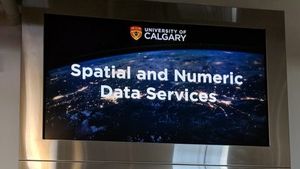I am at the SCONUL conference in Edinburgh this week and have been getting ready. I was looking at the National Library of Scotland’s website earlier today and was interested to see this notice:
PhD candidates are eligible for the research post, which is being funded through the Arts and Humanities Research Council (AHRC). The successful candidate will compare the content of family blogs and websites with the social network revealed in a collection of 19th-century correspondence at the National Library of Scotland. He/she will work closely with the Harden/Allan collection, but will also search other NLS sources. [News – National Library of Scotland]
This is a collaborative initiative with the Humanities Advanced Technology and Information Institute (HATII) at the University of Glasgow. I was interested to see the form of the research output:
The student will be asked to deliver the bulk of the thesis in non-traditional format, combining an on-line collection of the examples from both the analogue and digital evidence, assembled during the course of the project, with accompanying explanation and exegesis that will be made available through the NLS website. This will provide a useful learning resource and a platform for future research into what we might term the ‘diplomatic’ of the digital. The written elements of the thesis will be an explanation of the underlying methodology and research results. At the end of the project HATII and the NLS will stage a workshop to disseminate and discuss the findings. [HATII, University of Glasgow]


